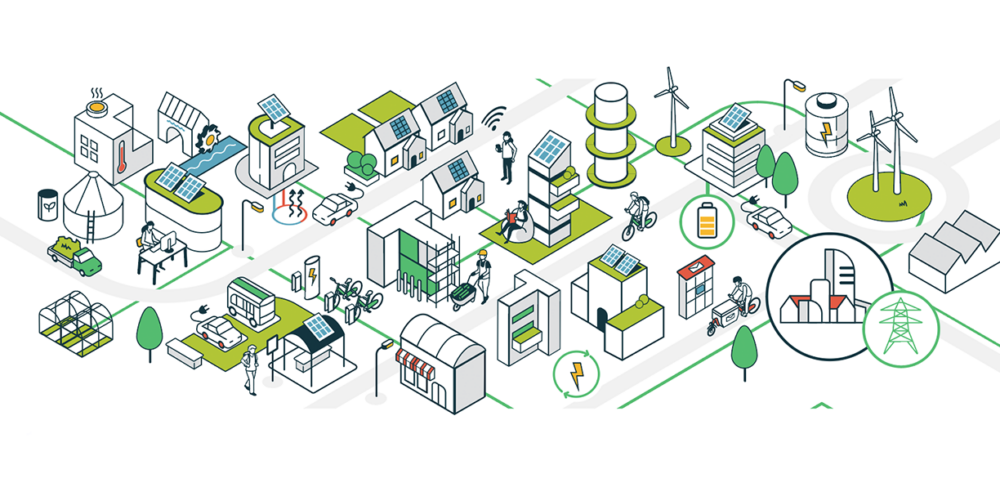Can ‘ordinary’ people contribute to solving energy crises?
COPPER stands for ‘Creating, Optimizing and Planning Positive Energy Districts’ and is part-financed by the European Commission and the Norwegian Research Council.
In the age of the green transition, COPPER looks at an exciting opportunity: how local energy communities can contribute to solving the global energy crisis. Through research, innovation, and strategic collaboration, new solutions must be put on the table and brought to light.
Ruralis’ role in COPPER is to assist with the development of support systems so that neighbourhoods can more easily contribute to the green energy transition. At the same time, says Kristian Borch, a senior researcher in Ruralis and Ruralis’ project manager for COPPER, we will be responsible for coordinating the dissemination of the results.
The project aims to develop new concepts for how we can plan areas and energy developments so that we get so-called “Positive Energy Districts” (PED).
“Ultimately, the goal is to get the citizens on board to meet the changes our energy system is facing in the green energy transition,” says Borch.
Turbulent times affect the energy market
COPPER is part of an international partnership called DUT, The Driving Urban Transition Partnership. It encompasses more than 60 organizations from 28 different countries working together to solve various sustainability challenges.
Energy is one of DUT’s major investment areas. The last few years of pandemic, outbreak of war, and inflation in Europe have really shown that we all have to think about energy in a new way. Local production and consumption of renewable energy must be increased to reduce CO2 emissions.
If Europe is to achieve the green energy transition, we must all contribute. The good news is that it can pay off. Therefore, citizens can and should participate to a greater extent in PEDs, together with governments and the various market players, says Borch.
In the EU, there is a target of establishing 100 PEDs by 2025.
Borch points out that the PEDs should give us a greater awareness of energy use and, at the same time, create flexible energy consumption. This involves energy systems that contain a far greater proportion of renewable sources.
It has become a habit for us that energy is there when we need it, and that the system delivers energy at a cheap price. In the future, we ourselves will become an integrated part of the system in the form of networks – what we call “peer-to-peer networks” – that share information about supply, storage, and consumption. In this way, says Borch, we can ensure that the energy is produced and utilized in the most beneficial way possible.

The EU has set a target of 100 local energy communities, also called “Positive Energy Districts” (PED), by 2025. Illustration: Driving Urban Transitions
Development of urban areas
In COPPER, the research communities will draw on experiences from energy communities in Norway, Denmark, the Netherlands, and Portugal. The project will last three years and is now in the start-up phase.
In the end, we will be left with a lot of new and valuable knowledge, which Ruralis will have a duty to pass on.
The COPPER project will help create systems where citizens, governments, and market players can share knowledge about how local energy networks are created. It will be positive for the energy market, but also give us information about how we can plan cities and other urban areas in a more sustainable way, concludes Borch.
COPPER
This is an EU-supported project that looks at how citizens can contribute to Positive Energy Districts (PED). The goal is to make better use of the energy we have.
Several universities are participating in COPPER, including Radboud and HAN universities in the Netherlands, Aalborg University in Denmark, and the University Institute of Lisbon in Portugal. In addition, the company EBO Consult in Denmark and Eigersund Municipality and Svåheia Eiendom AS in Norway are involved. Ruralis has a coordinating role in the project.